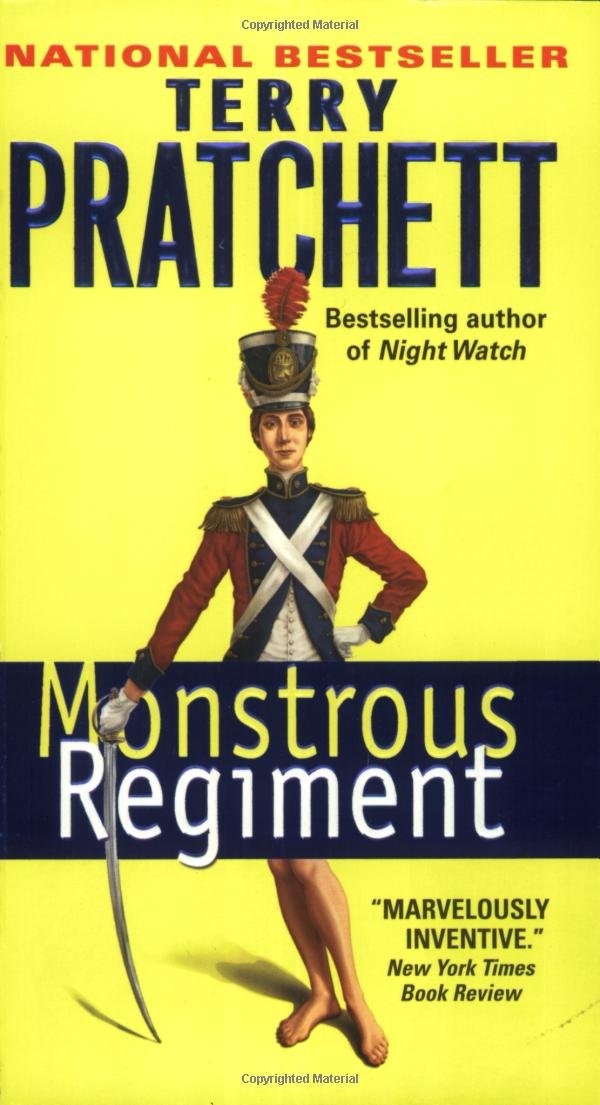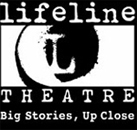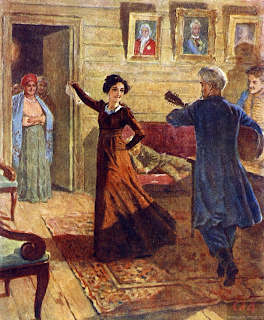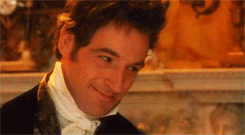(This is a post for the
Classics Club's Twelve Months of Literature Event... January's theme is Shakespeare!)
So I meant to write this post yesterday, but got a little busy. Anyway, reading Shakespeare (and other Elizabethan period lit) can be difficult and daunting, so I thought I'd give some tips to anyone struggling with it (or nervous about it).
I've been reading Shakespeare since I was nine or ten, when I started a homeschool class lead by an awesome young lady. When she went to college the class ended, but we had a good four years or so of reading Shakespeare's works in depth. :-) It's been a good introduction, and I credit that class for all the following knowledge.
Okay, here we go!
Common Problems
1. Words don't always mean what you think they mean. In Shakespeare's time, many words had different meanings than they do today. Cousin just means family, not necessarily a cousin. Soft means wait! Hold! as in: "But soft! What light through yonder window breaks?" from Romeo and Juliet. The list goes on and on.
Tip: Use context clues to determine what the word would mean. If the sentence doesn't make sense with the current definition of a word, try to think what else it could mean. Look up the word, and see if there's an archaic definition. (Also, see my final tip on Folger Editions.)
2. Sentences are twisted. Generally, we speak with the subject coming before the predicate: "He said...", "I go...", etc. Shakespeare flips it around. "Said he...", "Go I..." But this isn't the biggest twist. Shakespeare also might put the object in the beginning of a sentence, instead of at the end. For example, we say, "I tapped him on the shoulder." Shakespeare might say, "On the shoulder tapped I him." Huh? But wait, there's more! Shakespeare also likes to disconnect the subject and predicate. Not just with one adverb or something, but really throw them MILES away from each other. Take this bit from Hamlet:
Therefore our sometime sister, now our queen,
Th' imperial jointress to this warlike state,
Have we (as 'twere with a defeated joy,
With an auspicious and a dropping eye,
With mirth in funeral and with dirge in marriage,
In equal scale weighing delight and dole)
Taken to wife...
Now, look at it this way:
Therefore our sometime sister, now our queen,
Th' imperial jointress to this warlike state,
Have we (as 'twere with a defeated joy,
With an auspicious and a dropping eye,
With mirth in funeral and with dirge in marriage,
In equal scale weighing delight and dole)
Taken to wife...
The italics show the vital parts of the sentence: Our sometime sister have we taken to wife.
Or, flipping it around, and getting rid of the royal
we: I have taken to wife my sometime sister (i.e. my former sister-in-law).
We finally get to the meat-and-potatoes: He's married his sister-in-law.
Shakespeare might also delay the main bit of the sentence, to add suspense and tention, as in this line, also from
Hamlet: "Within a month,/ Ere yet the salt of most unrightious tears / Had left the flushing in her galled eyes, / She married."
This can be simplified down to: She married within a month. But Shakespeare held back the "She married" part for emphasis.
Tip: Read it out loud. Personally, the first time I read any Shakespeare play, I read it out loud to myself. When you read it - or more importantly, hear it - out loud, you get a sense of where things should go. And you can try it a couple times to see which emphasis sounds right.
Also, if you can, go see a play. The actors have already figured out the emphases and structure of the sentences, and it might help you to get a better idea of what Shakespeare's trying to say. If you can't go see a play, you'll have to do what the actors do, and read it out loud a couple times.
3. Shakespeare likes puns. And some of them don't make sense because they use archaic words (see #1). Anyway, Shakespeare's puns are less of a problem than they are a deeper layer that you will miss if you don't look closely. One of my favorite plays for puns is Twelfth Night, because the Fool speaks practically entirely in them. But also other characters in the play speak in puns, even Orsino:
That instant was I turned into a hart,
And my desires, like fell and cruel hounds,
Ere since pursue me.
The pun here is on hart (a dear) and on his actual heart. Puns in Shakespeare aren't always funny.
Also, there are lots of puns dealing with dirty inappropriate stuff. Elizabethans were a rather rowdy bunch, and enjoyed having an abundance of that sort of stuff in their entertainment. (Twelfth Night is full of it.) But it's not obvious at all (which is why Shakespeare is fine for kids).
Other Wordplay that Shakespeare Uses:
- Metaphors (comparing two things without using "like" or "as.") The pun above regarding hart/heart is also a metaphor, because Orsino really wasn't turned into a deer. Another example is from Romeo and Juliet: "It is the East and Juliet is the sun." Obviously Juliet isn't really the sun.
- Similes. These are like metaphors, except they compare two things using "like" or "as." The one that always comes to mind for me is from King Lear: "Thou art damned, like an ill-roasted egg, all on one side."
- Malapropisms: See This Post
- Echophonesis: See This Post
4. These are plays, not novels, but there are still no stage directions. Usually, in a script, it says when to sit, stand, fight, etc. Well, Shakespeare doesn't. He expects you to know by the dialogue what to do, if you are an actor. For example, in Twelfth Night, Toby says to Sir Andrew: "Let me see thee caper. Ha, higher! Ha, ha, excellent!" Though there is no direction to that effect, you'd expect Sir Andrew to be dancing.
Tip: Be on the lookout for action words: "Draw and fight!" etc.
Folger's Editions
What I have found invaluable in reading Shakespeare is the Folger editions:
 |
| (here's my Twelfth Night) |
I don't have a Folger for every single one of Shakespeare's plays (that's where my
Complete Works of William Shakespeare comes in), but when reading one of his plays, I naturally gravitate towards the Folger, if I have it. Here's why:
The Folger editions are written in such a way that the play is on the right page, and the definitions of weird words, the explanations of puns, as well as some pictures to help you better visualize outdated objects and dress are on the left. This is SOOO useful, and will diminish many of the problems that I outlined above. I'm sure that there are a few other versions out there like the Folgers. However, I don't recommend the No Fear Shakespeare. These are in a similar format to the Folgers, but instead of having just definitions and explanations on one side, they have the entire play written out in modern language. I think that just takes out all the fun! Also, there's a certain temptation to just read the modern side and completely skip the Shakespearean side. So are you really reading Shakespeare's play, then?
Folger's also has a bunch of introductions that explain basically more in depth what I said here, regarding Shakespeare's language (and from which I took many of my examples). There's also a nice biography of Shakespeare, as well as a bit on the particular play.
Good luck on your Shakespearean reading! Let me know which play(s) you are tackling this month. I think I'm going to be reading either Othello or Henry V later on in January (maybe both!), since I've never read either.
Happy New Year, and happy reading!
~Sophia





























